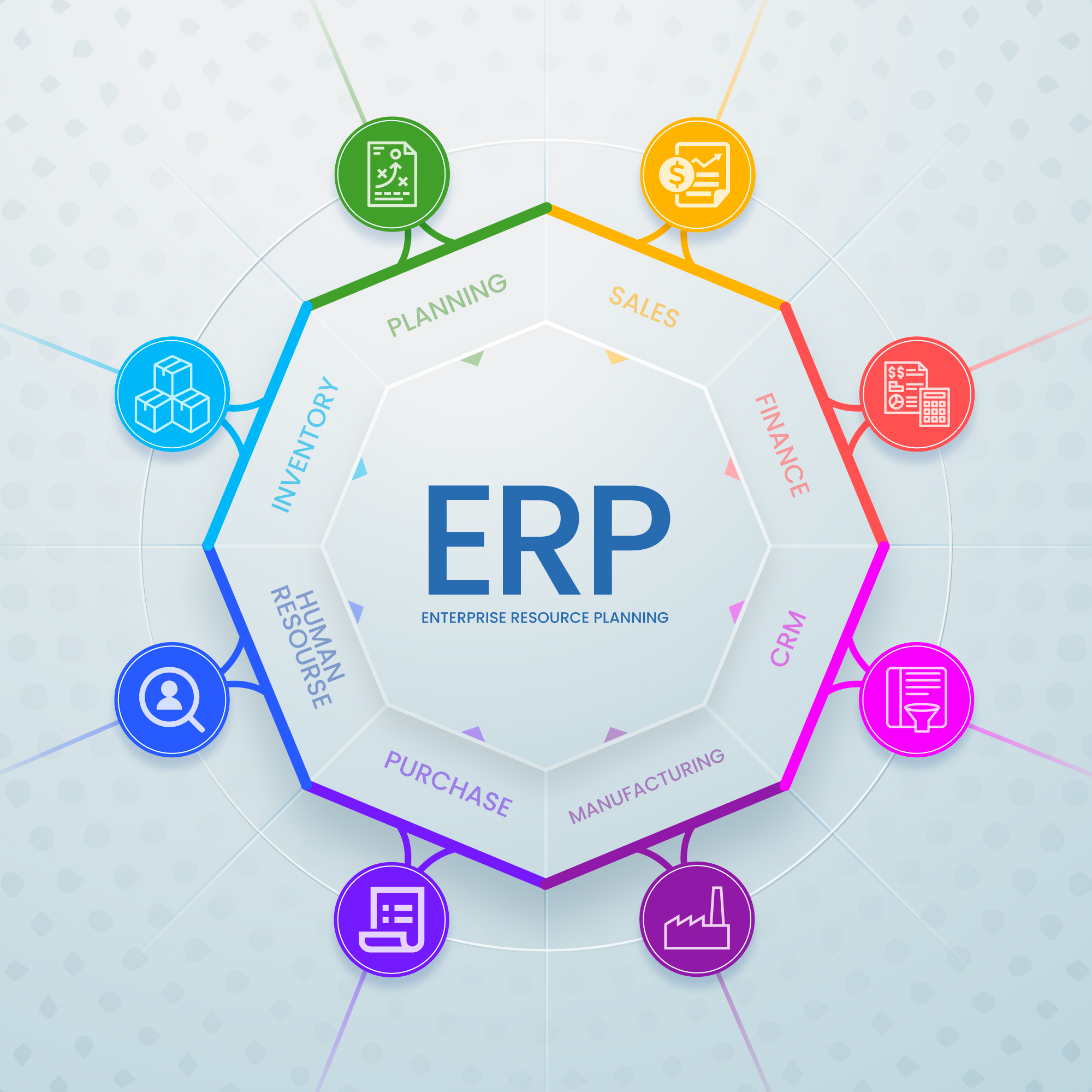ERP refers to “Enterprise Resource Planning“. It is an integrated software solution businesses use to manage and coordinate their core processes such as finance, procurement, production, warehousing, distribution, sales and human resource management.
At the same time, it combines various functions and data into a common system. Thus, it provides an integrated framework for decision-making, process control and optimization of business processes. Companies use it to enhance their performance, reduce costs, increase efficiency and improve the overall management of their business.
Also, this system usually consists of various functional parts that are integrated together. Such are software for financial management, warehouse management, sales and marketing, production and quality control, as well as human resource management.
The implementation of such system can be complex and usually requires the adaptation of the software to the needs and processes of the specific business.

Why is ERP useful for Businesses?
ERP is important to a business for many reasons:
Integrated Management: Firstly, it integrates various business functions and methods into a common system. This enables comprehensive and integrated management of business processes, reducing the need to use multiple isolated systems.
Process Optimization: Also, it helps in optimizing business processes as it coordinates the various functions and processes. This can lead to more efficient use of resources, reduced errors and increased productivity.
Better Decision Making: Moreover, provides real-time insights and data on the various aspects of the business. This helps managers make informed decisions based on comparable data.
Improved Transparency: It allows access to information and data from various functions and departments of the business. This helps improve transparency and collaboration within the organization.
Competitive Advantage: Using a well-integrated ERP can help gain a competitive advantage. With increased efficiency and better process management, a business can better meet the needs of its customers.
Adapt to Change: Additionally, a good ERP system can adapt to changes in business needs or the business environment. This allows the business to remain flexible and responsive to market demands.
Types of ERP Systems
1)Cloud ERP:
In this model, the ERP is hosted in the Cloud. In this way, the business has no installation costs, there is security and the provider constantly upgrades the system.
2)On-premise ERP:
In this model, the ERP is placed on the company’s equipment. Here the company is responsible for the installation, operation and maintenance of the system.
3)Hybrid ERP:
In addition, in this model the 2 previous models are combined. This means that some components are hosted in the cloud and some are installed on the company’s equipment.
Summary
Overall, ERP is an important tool to effectively manage, improve productivity and achieve competitive advantage for a business.
CustomLAB provides you with personalized software solutions according to the needs and demands of each business. With such a program, you can arrange daily operations, reduce their processing time and increase the ability of your business.